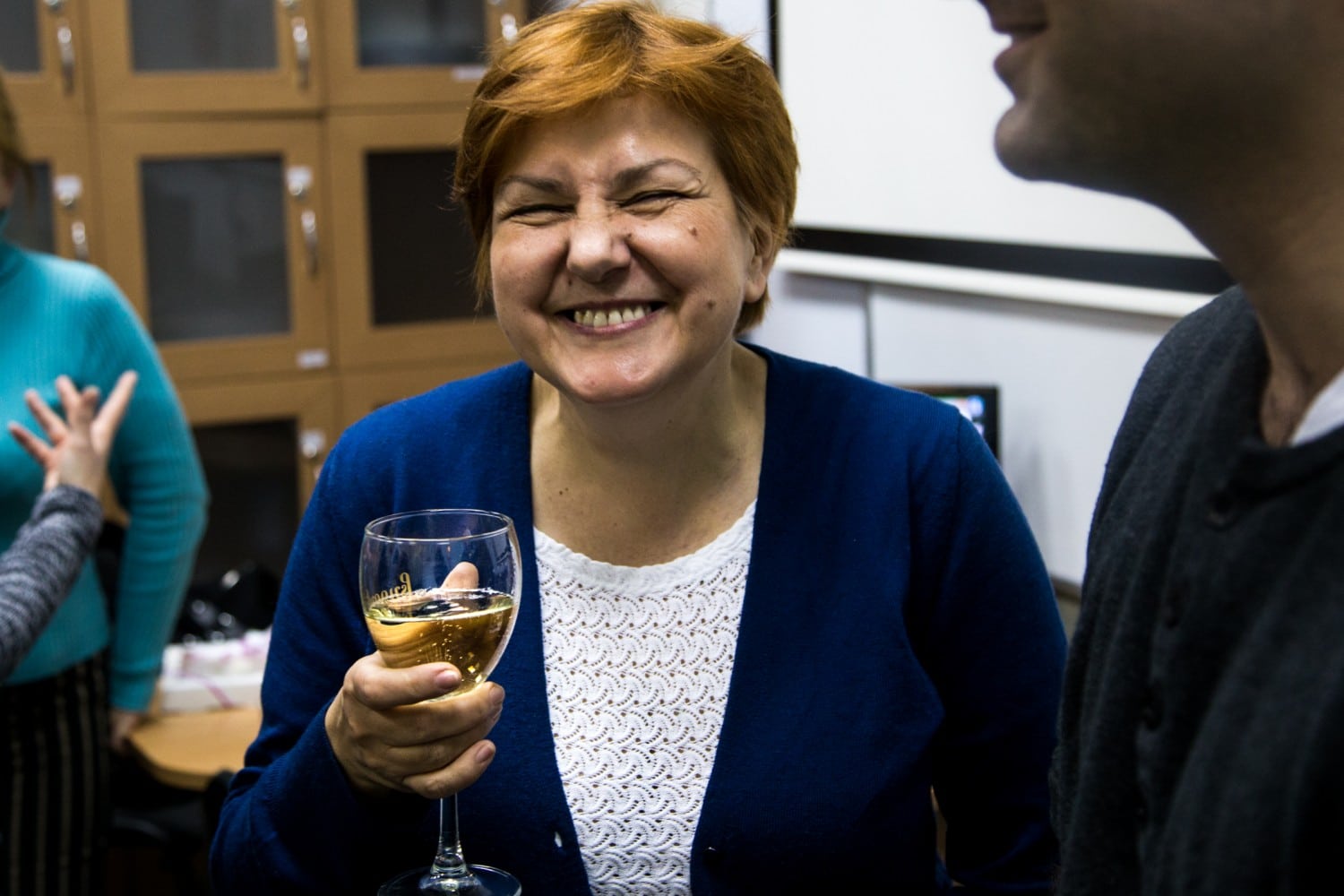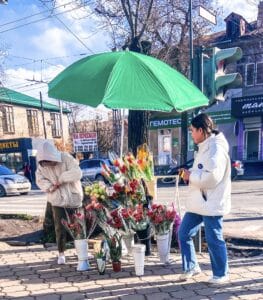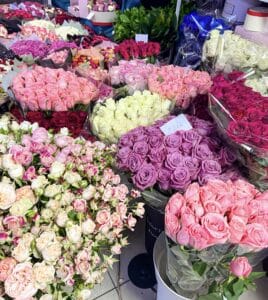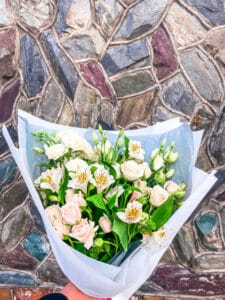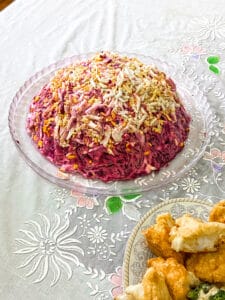International Women’s Day was first celebrated in St. Petersburg in 1913, declared by activists there and celebrated with rallies that demanded more rights.
It did not become an official state holiday and day off, however, until 1965. In that year, March 8th was chosen as it marked the day when, in 1917, women again marched in St. Petersburg, demanding bread, better working conditions, and an end to WWI. The march became violent, but soldiers refused to shoot at the women. It was one of the moments that eventually precipited the February Revolution that would bring the Bolsheviks to power. Another effect was that, a few days later, on March 19, 40,000 women marched through St. Petersburg to demand the right to vote. They held long, but eventually successful, negotiations with the head of the provisional government that night.
Today, the holiday is wildly popular throughout Eurasia and sees massive amounts of flowers, candy, and small presents bought. It is expected of men to honor all the women in their lives on this date.
Bishkek, 2022, International Women’s Day
By Maria Holderbaum
International Women’s Day in Kyrgyzstan is a day to celebrate and honor women, to show support for women’s rights, and to shower women with flowers, presents, and a lot of hearty food.
When I initially asked my host mother and my host sister how they celebrate International Women’s Day, they immediately glanced at my host father and host brother, shrugged their shoulders, and said, “ask them,” as it is up to the men in Kyrgyzstan to buy gifts and plan a special day for the women in their lives. My host family went on to explain that for most women in Kyrgyzstan, it is a day to receive flowers, eat out at a restaurant and, if they are lucky, receive gold jewelry.
As the holiday approached, street vendors started lining Bishkek’s main streets with buckets upon buckets of assorted flowers. You could buy a single tulip for 100 som/.95 cents USD, a small bouquet of roses ranging from 500 to 1500 som/$4.75 to $14.30 USD, or you could go all out and buy a huge bouquet of assorted flowers ranging from 3000 to 10,000 som/$28.60 to $95.00 USD.
While it is not traditional in Kyrgyzstan for women to buy other women gifts on International Women’s Day, I wanted to buy flowers for my host mother and host sister, as a thank you for accommodating me in Kyrgyzstan, and to show support for all women everywhere. I opted for a beautiful white and baby pink bouquet of assorted flowers, which cost was 2500 som/$24.00 USD. My host mother and host sister were all smiles when I brought the bouquet home the night before the holiday; they hugged me tightly and said this was their first bouquet of flowers from a woman and they were pleased to be able to celebrate the holiday with me.
On March 8th, I was invited by my host family to spend the day with them celebrating. We had breakfast at home and then went into the city center to buy my host sister new gold earrings. She told me she gets jewelry from her parents every year on International Women’s Day to show how proud they are of her and her accomplishments in life. We went to Beren Gold, a shopping mall that sells every kind of gold jewelry imaginable. Gold has long played a long part in traditional Kyrgyz crafts, as it is one of the few resources the country is rich in. Today, its economy is dominated by the Kumtor Gold Mine.
After one and half hours of my host sister trying on gold earrings, she finally chose a pair to her liking; my host father blessed the earrings, hugged his daughter, and told her he was proud of her and the woman she has grown up to be. This was a really touching moment, I could see how proud my host father was of his daughter and the earrings were a way for him to show her how much she means to him.
After we bought the earrings, we went to lunch at a local Kyrgyz restaurant and enjoyed the families favorite Kyrgyz dish (lagman). In Kyrgyzstan it is common for locals to only go out to eat as a family on holidays, as most meals are cooked and eaten at home. We then walked around the city center where men, women and children were out celebrating the holiday. Every man that went past us said “S praznikom” (which basically means “happy holiday, enjoy”) and most women were carrying at least one flower from a loved one.
That night, we went to my host families’ grandmothers’ home to have a huge dinner to celebrate all the women in the family, which consisted of the grandmother, mother, daughter, two cousins and a newborn baby girl. We ate beshbarmark, the national dish of Kyrgyzstan, which had yak meat, noodles, onions and broth and we had shuba salad, a Russian salad made with pickled herring, boiled eggs, beets, potatoes, and carrots. We drank more cups of tea than I can count and sat around laughing and telling stories. We then ended the evening with a Kyrgyz prayer that wished for all women to have peace, prosperity, and love.
What I learned about International Women’s Day in Kyrgyzstan is the holiday is meant to not only celebrate women and how far women have come in the world, but to celebrate love, family, and to enjoy the people in your life. In Kyrgyzstan, the holiday focuses on women, but it is also a time for the entire family to relax and enjoy each other’s company, eat delicious food and give thanks to the women and all they do for the household.
Kyiv, 2017, International Women’s Day
By Rebekah Welch
Perhaps no one in the world takes the celebration of the 8th of March, International Women’s Day, as seriously as those in Kyiv. It makes sense that the day is especially heralded in Ukraine and Russia, as it was a popular Soviet holiday honoring women workers. In 1917, women textile workers in St. Petersburg went on strike for “Bread and Peace,” calling for an end to the war, and end to the famine, and end to tsarism. A week later, Tsar Nicholas II left the throne, and the provisional government granted women the right to vote. Later, the USSR also granted women the right to vote. Thus, I knew that there would be no school on the 8th, and, being from America where the holiday isn’t exactly a “holiday,” as much of a day of observance, I was plenty excited about the simple prospect of a day off. I did not expect any additional gratuity to be paid for my gender. I was mistaken.
An administrator of NovaMova, the Russian language school at which I study, asked me to be present at an office party on Tuesday, the 7th, at 11:30 am. I didn’t yet make the connection with the upcoming holiday. When I left home Tuesday morning, however, I started to realize that this was no President’s day, where everyone forgets the point of the holiday and is grateful for a day off. No ma’am. This was something else entirely, a 2-day celebration, which, at 10:30 am, was already well underway. There were twice as many flower stands as usual, a sea of roses, tulips, and vendors surrounded the metro entrance. There were merry, rosy-cheeked, work-bound businessmen on the metro, carrying their briefcase in one hand with a bottle of vodka or champagne and chocolates in the other. People smiled at me at said “Spraznikom!” (happy holiday) in Aroma Kava, a fast-paced, frantic, and never friendly coffee shop where I often stop for espressos on the way to class. The fun of this day was serious business, and it wasn’t even the holiday yet.
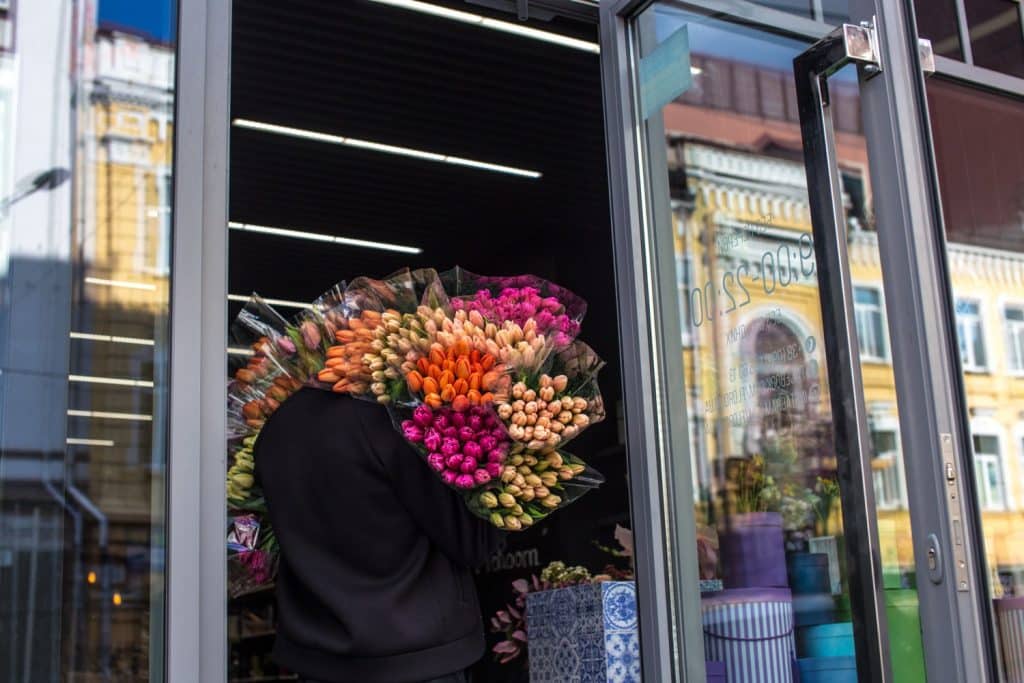
Of course, when I got to school, the “office party” that the nice administrator had requested I photograph was a little more exciting than those two words normally imply. When I arrived, she was hauling arranging two enormous bags of chocolate goodies on platters, and a second was carrying in six bottles of champagne. I feel the need to include the fact that NovaMova does NOT have a very large student body at the moment, either.
When everyone arrived, one of the teachers made a very heartfelt little speech about how much the women of NovaMova are appreciated, students included. The co-founders were absent on a business trip, but had purchased a box of cookies and meringues for every woman present. Then there was candy. And then there was champagne. Lots of champagne. Let me just say, if ever you have the opportunity to drink alcohol at a school function with your teachers, particularly if your teachers are adorable Ukrainian women, go for it. By the end of that party I had been kissed on the cheek 5 times, felt a bit like I was partying with my aunts at brunch. What I particularly enjoyed was that my lessons had been switched to the afternoon that day, meaning that as I watched both tutors get silly, I was looking forward to how our lessons would go in an hour.
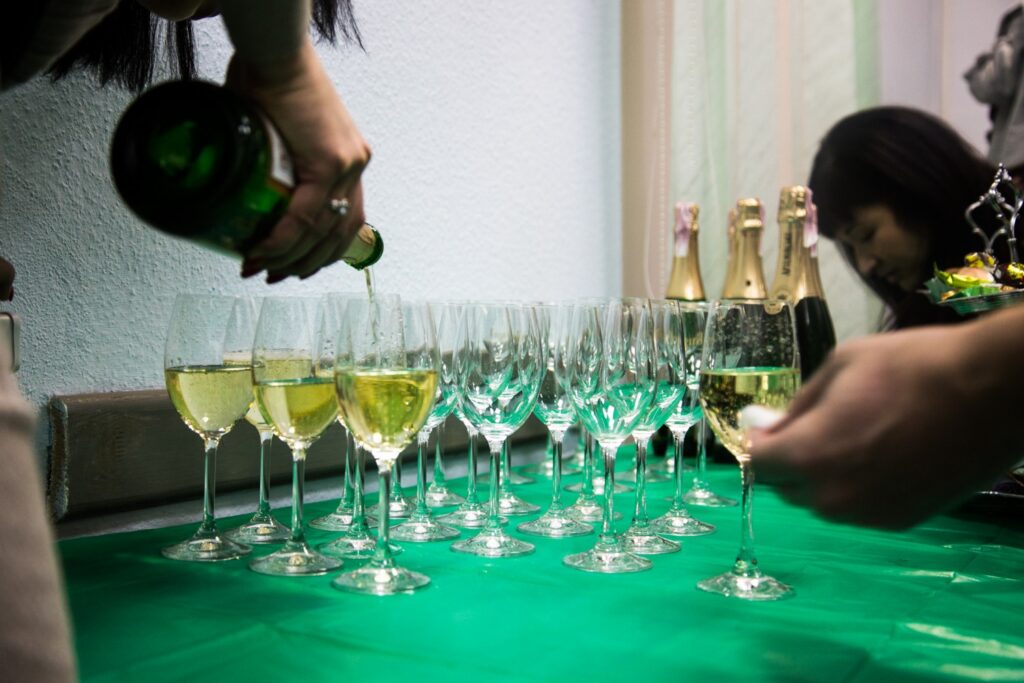
Now here’s the thing. As much as I wanted to fully appreciate the gleeful celebration, I have to admit, as an avid consumer of news, at first, I couldn’t help but feel, well, guilty. Getting buzzed on champagne and eating expensive chocolates from my male bosses on International Women’s Day while I knew there were women’s marches happening all over the world. The thought was sobering, and I feared this Valentine’s like celebration might cause the Soviet Woman protesters in Petrograd 100 years ago to cringe in their graves. When I got a chance to express this concern as tactfully as I could to one of the more spunky women of NovaMova, she responded without missing a beat, “Duh, it’s the 7th, why do you think we’re having the party today? There’s a women’s march tomorrow.” Protests for social change, AND champagne. They know how to do it in Ukraine.
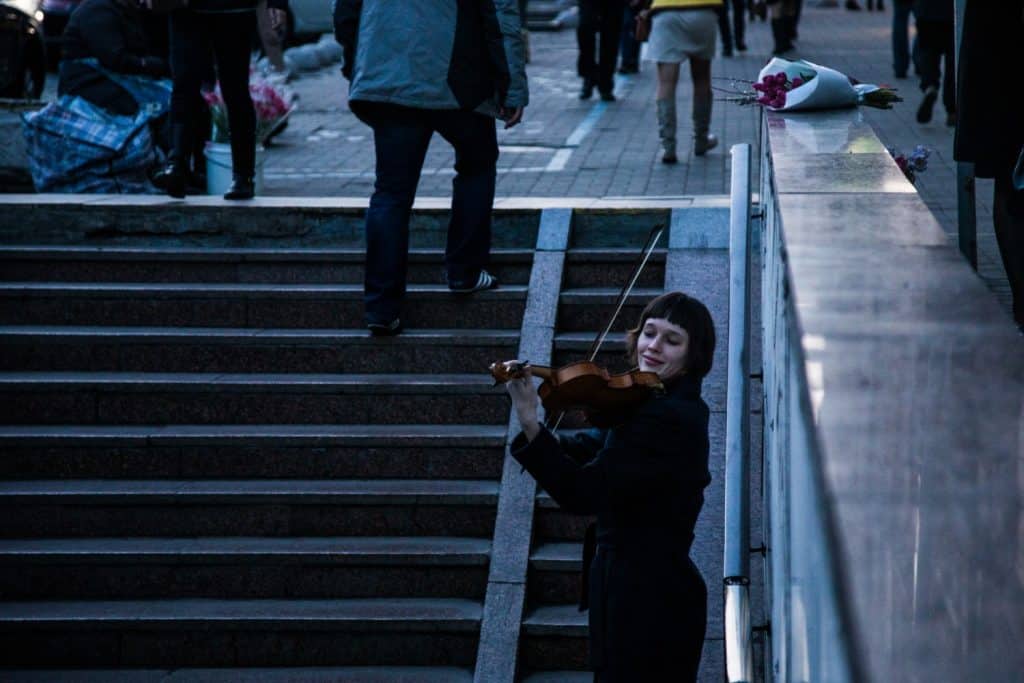
The Language of International Women’s Day
By Andrei Nestrov
The following bilingual Russian MiniLesson is meant to build your vocabulary by providing Russian phrases within English text. Hover over the bold Russian to reveal its English translation.
or is one of Russia’s official holidays, but has a Western . It was originally championed in the US and Europe by those working for women’s suffrage and socialist causes.
In August, 1910, a was organized to precede the general meeting of the Socialist Second International in Copenhagen. Inspired in part by American socialists, German Socialist Luise Zietz proposed establishing an annual “International Woman’s Day.” The delegates, 100 women from 17 countries, agreed with the idea as a strategy to promote , including for women.
It long did not have a set date across the globe, but was most often celebrated on a Sunday. In Tsarist Russia and America, for instance, it was usually held on . In 1913, Russian women their first International Women’s Day on the last Sunday in February according to the Julian calendar, which used in Russia at the time.
On February 23, 1917 (March 8 according to modern calendars), women in Saint Petersburg went on strike for , demanding the end of World War I and the food shortages that the war had helped cause. The next day, workers from the Putilov Plant , after which occurred, and finally . , as it came to be known, was put down, but was seen as a precursor to the which would topple the tsarist government.
Following the October Revolution, Bolshevik Alexandra Kollontai persuaded Vladimir Lenin to in the Soviet Union, but it was still a . In 1965, March 8th became a . In the Soviet Union, this holiday was , until eventually becoming a day for women to fight .
International communists worked to make the day an international holiday, but apparently found international resistance because of the day’s connection to the events that helped create the USSR. A story began to circulate, apparently originally from the French Communists, that began with a held on March 8, 1857 by female workers of textile factories in New York . The women, the story goes, had to be beaten back by police.
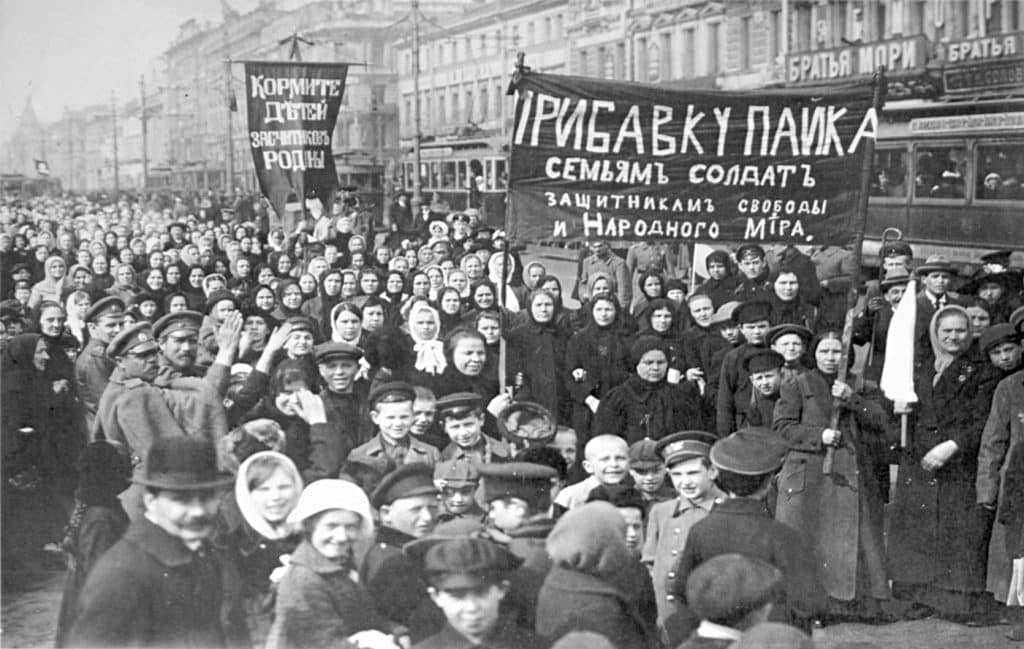
Although there were many protests in New York of the sort described in the story, such a protest did not occur on March 8, 1857. Interestingly, however, the Communist authorities in the USSR began supporting this version – tracing the original roots of the day not to St. Petersburg in 1914, but to the US in 1857 and thus the story is widely accepted the world over.
In 1975, . Every year, they set a theme for the day, focusing on women’s rights and issues.
Currently, March 8 is an official holiday in many countries, including throughout most of the former USSR, China, Cuba, and some countries in Africa and Asia. In some countries, the day is not a public holiday, but is nonetheless.
In Russia, the political side of the holiday has been largely forgotten in favor of a romantic slant. The of celebrating March 8 is and . The most popular to give are , , , , , and . In the Soviet era, were a popular flower to give. significantly increase in number around March 8; in some of them, . Studies show that Russians spend, on average, about a half billion dollars on flowers for the holiday. Spending on this holiday accounts for between 15 to 40 percent of Russia’s two billion dollar a year flower market.
Many men and many will on that day as well. Some men will as a gift as well. The most popular gifts given on this day include .
Russia is also not short on holidays celebrating women. Russia also celebrates , which occurs on the last Sunday of November, but on which it is only . День матери. was also only introduced to Russia in 1998 and is not widely celebrated there. Another recent import is , when Russians . is quite widely observed, however, and the Moscow metro can be seen overflowing with young men carrying flowers on this day. March 8 is different from both of these holidays because on
You’ll Also Love
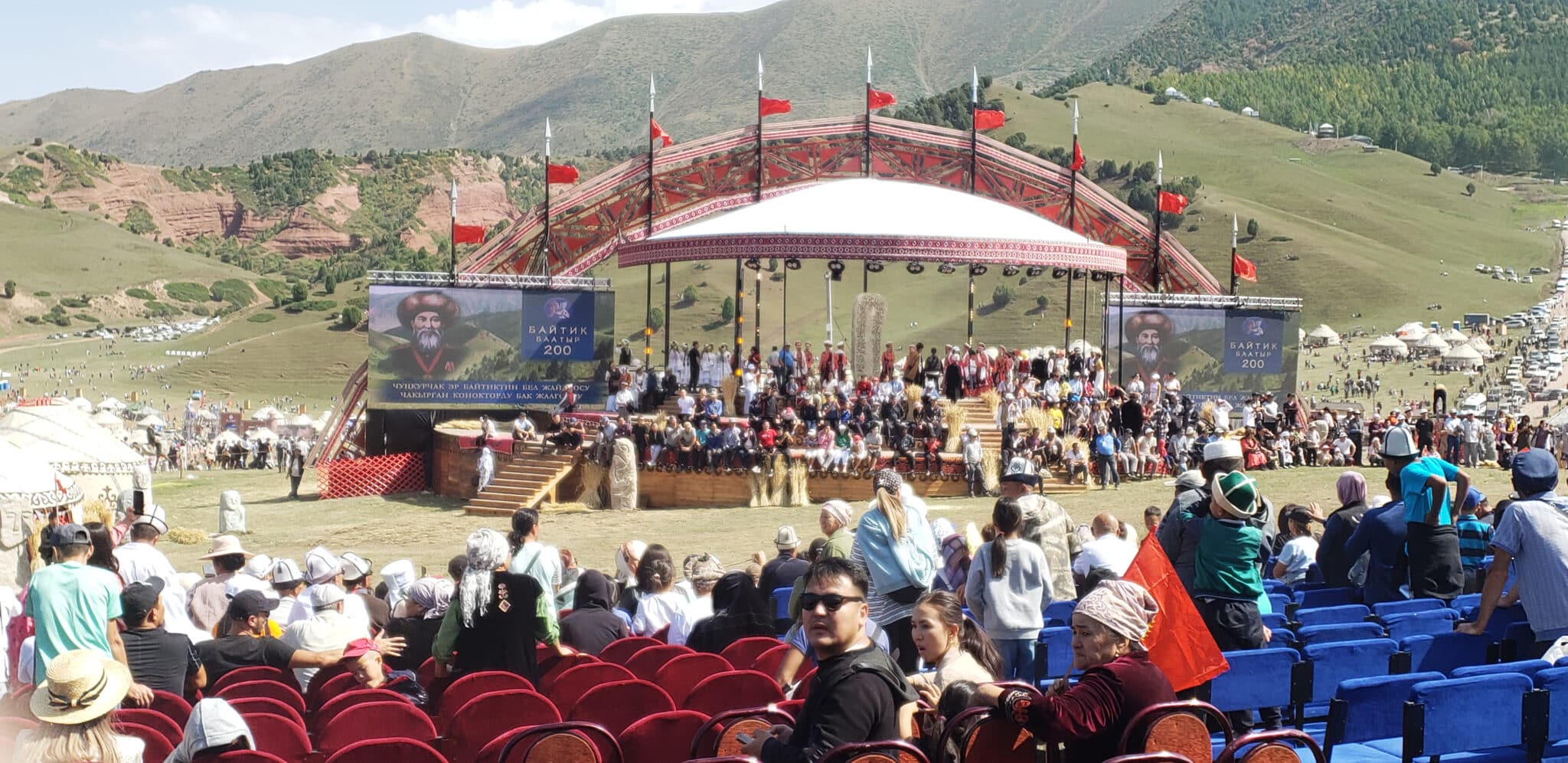
Kyrgyz Independence Day: Student Observations
Kyrgyz Independence Day is celebrated each year on August 31. It marks the date when, in 1991, Kyrgyzstan declared itself an independent republic and left the USSR. One of my fellow classmates at my university back in America, who had studied abroad a year prior, highly recommended attending Independence Day celebrations in Kyrgyzstan, noting that, […]
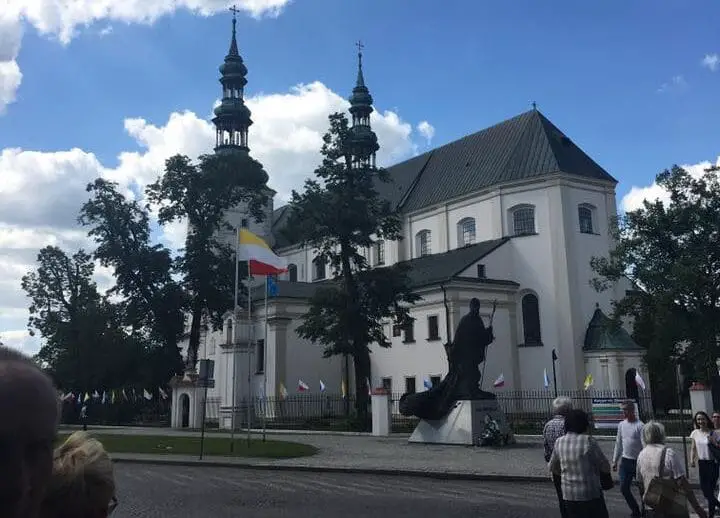
Corpus Christi in Poland: Student Observations
Corpus Christi is a Catholic holiday celebrating the Blood and Body of Christ. Since Poland is majority Catholic, most stores and eateries in the country are closed for this very popular day. As a participant in SRAS’ study abroad programs in Warsaw, I was given the opportunity to spend the day with my peers to […]

Kulich, Paska, Nazuki: The Easter Breads of Eastern Christianity
Easter breads such as kulich, paska, choreg, and nazuki are delicious Easter traditions. Easter is by far the most important religious holiday for those practicing Eastern Christianity. In addition to church services and egg dying, the holiday is also marked across the cultures by ritual bread baking. Despite the wide geographic area covered by Eastern […]
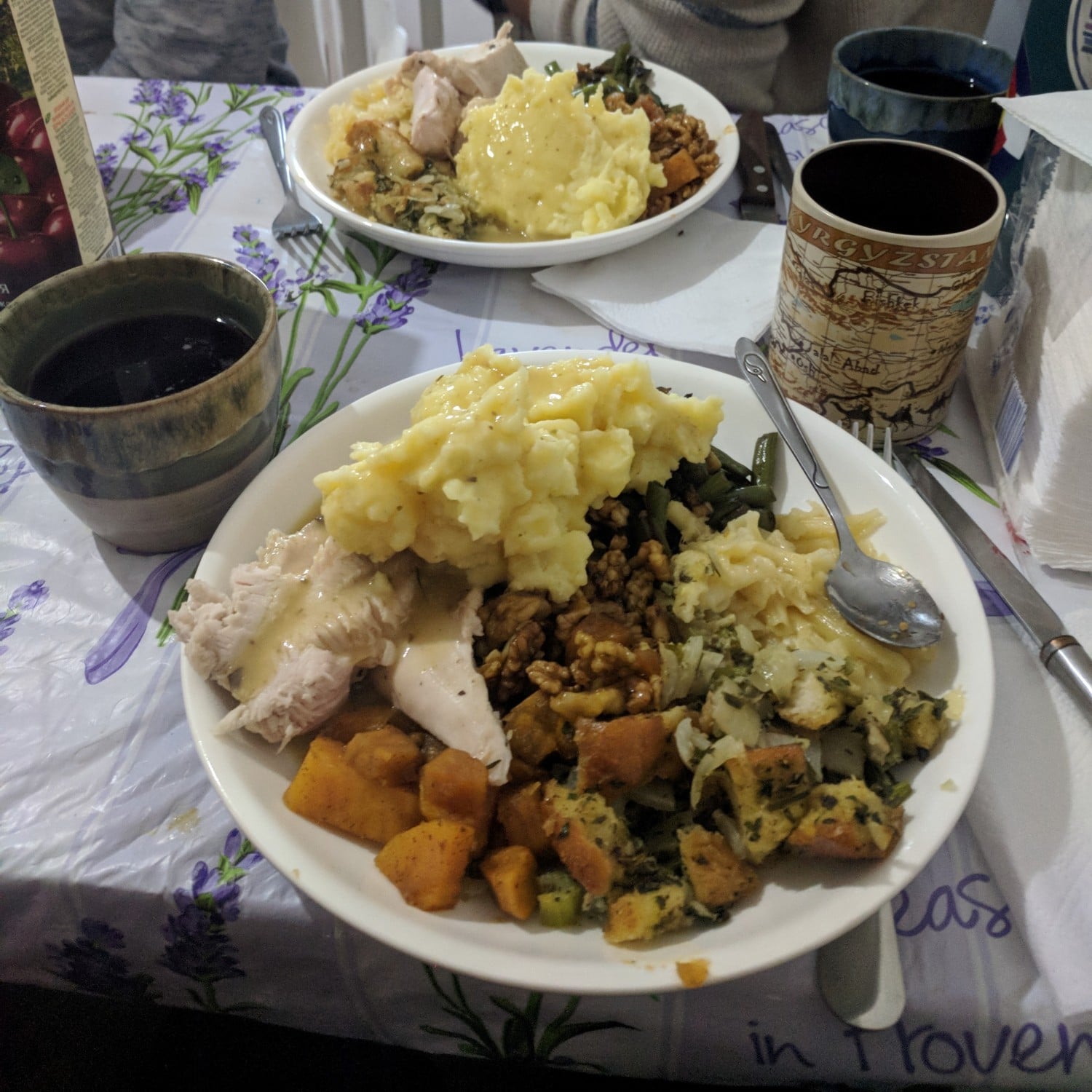
Russian MiniLessons: Thankfulness
The following bilingual Russian MiniLesson is meant to build your vocabulary by providing Russian phrases within English text. Hover over the bold Russian to reveal its English translation. This topic is doubly pertinent this month, as has just passed, but also because many are likely to be affected by the new law on NGOs. The […]

Vinegret: The Salad is in the Chopping
While most Westerners know vinaigrette as an oily dressing, often of the raspberry or balsamic variety, in Russia and other countries of the former Soviet bloc, the word has a very different meaning. In these countries, “винегрет” (vinegret) is itself a salad, composed traditionally of boiled, diced beets, potatoes, and carrots mixed with diced pickles, […]

